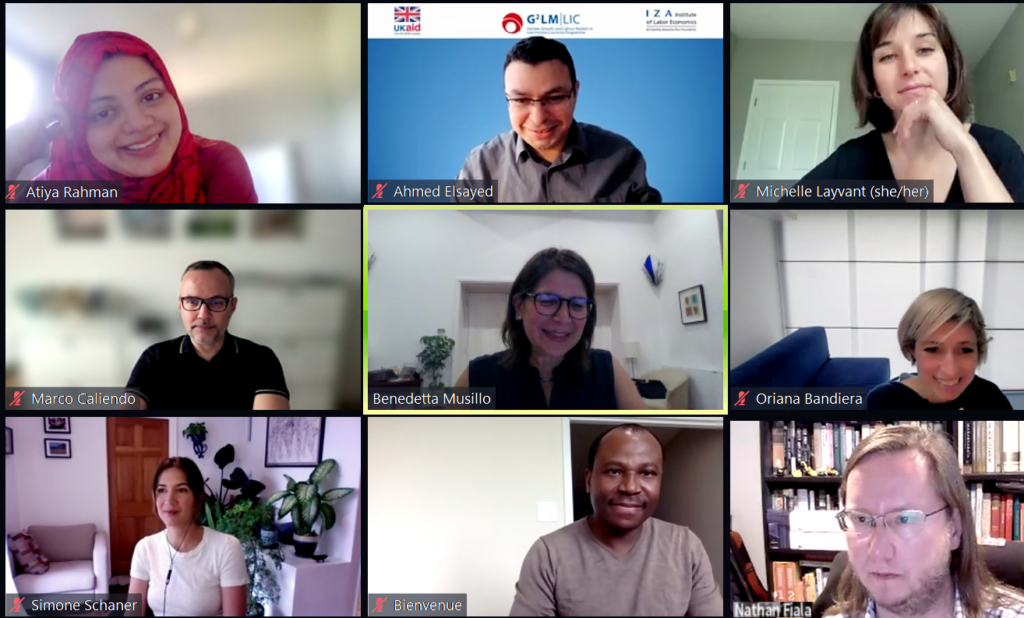
The COVID-19 pandemic has crippled the world economy, and low-income countries were hit the hardest. To explore emerging policy solutions based on the newest findings on the impact of the pandemic in LICs, G²LM|LIC convened a research meeting on its COVID-19 research projects.
Simone G. Schaner of the University of Southern California, Atiya Rahman of BRAC University, Michelle Layvant of UC Berkeley, and Nathan Fiala of the University of Connecticut discussed a wide range of topics covering rural-urban migration, the current situation of SMEs, long term labor market outcomes, the resilience of micro-entrepreneurs in the informal sector and among others.
- Simone Schaner and her team found that in India, migrants who were able to move back to urban areas and secured employment earned more than those left behind. Among those who returned, female workers struggle more to earn pre-pandemic level wages than men. Read about the project here.
- Atiya Rahman and her team conducted a large-scale panel survey to examine how cottage and microenterprises in Bangladesh have been coping with Covid-19. In July 2020, sales were less than half of that of pre-Covid levels, and only about 60% of enterprises were fully open. However, by January 2021, 97% of the enterprises were fully open for business. Although there was an initial stimulus, these SMEs have hardly received any financial support suggesting barriers to accessing such incentives. Read about the project here.
- Nathan Fiala presented how higher human capital and more durable assets induced by cash transfers (CT) made individuals more resilient to COVID-19 shocks in Uganda from a 12-year follow-up of a CT intervention. Read about the project here.
- Finally, Michelle Layvant’s research highlighted the importance of understanding female labor market outcomes and home learning. Read about the project here.
Apart from targeted policy solutions from local governments, researchers are calling for a global commitment to ease the post-pandemic economic burden.